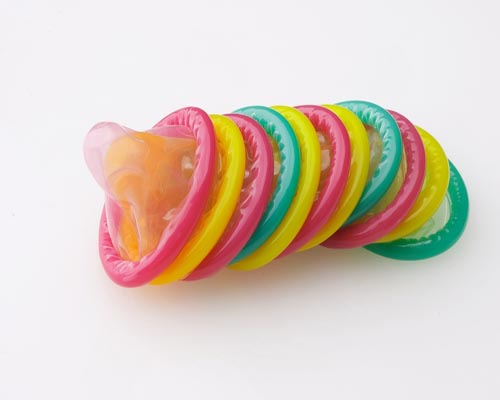HIV prevention can only be done by taking precautions against contracting the virus, as there is no vaccine licensed for use so far. An HIV positive person usually finds his life turning upside down after contracting the infection. This is not only because of the increasing disintegration of his immune system, but also because of the mental pressure he faces daily due to the social stigma associated with the condition. The overall quality of his life deteriorates with each passing day. Though this last problem can be remedied to some extent, the individual always has to live with the condition as it does not have any cure as yet.

HIV Prevention – Eight Important Tips To Avoid The Infection
Here are some important measures you must take to protect yourself from an HIV infection.
-
Avoiding Unprotected Sex
An HIV infection can spread during vaginal, anal, or oral sexual contact with an HIV positive partner. In case one of the partners has tested positive for HIV, the other partner should be informed about the infection. Also, dental dams must be used during oral sex and condoms during penetrative sex. This is recommended as unprotected sex in such instances increases the risk of transmission of the infection from the HIV positive individual to the healthy one. In any case, it is important to remember that neither of these methods are foolproof.
-
Avoiding Sexual Contact With Multiple Partners
When both partners have tested HIV negative, there is no risk of transmitting the HIV infection as long as neither of them has sexual contact with multiple partners.
-
Staying Away From Illegal Drugs
Ensure that you don’t share needles for drug use, tattooing, or piercing, as HIV infected blood can enter the body of a healthy person in such a manner and transmit the infection.
-
Preventing The Transmission From The Mother To The Child
Pregnant women who’ve tested HIV positive can significantly reduce the chances of transmitting the infection to their baby by taking anti-retroviral medication during pregnancy as well as for six weeks after delivery. Breast feeding should also be avoided to reduce the risk of transferring the infection to the newborn.
-
Taking Precautionary Measures In Healthcare
Workers in a healthcare setting should follow recommended guidelines for protecting themselves from exposure to contaminated fluids and injuries caused by syringes. If you work in a healthcare environment, you should be extra careful while handling blood and infected body fluids. Also, wear protective clothing, masks, and goggles while caring for HIV positive individuals.
-
Screening Before Blood Donation And Organ Transplantation
Blood and organ donors must be screened for HIV infections and only after the screening results appear negative should they be allowed to proceed with the donation.
HIV Prevention – What Happens When An Individual Engages In Risky Behavior
If you engage in any of the risky activities mentioned above, you automatically increase your chances of contracting HIV. In such a case, you must get an HIV test done at the earliest. If you do test positive for HIV, seek medical treatment immediately. Taking anti-retro viral medication is known to reduce the chances of transmitting the infection.

The HIV infection breaks down your body’s immune system, eventually leading to the climactic stage of AIDS. There are treatments to help HIV positive individuals stay healthy despite living with the infection. But, HIV prevention is your best bet, because if and when you contract this infection, you have no complete cure to fall back on.